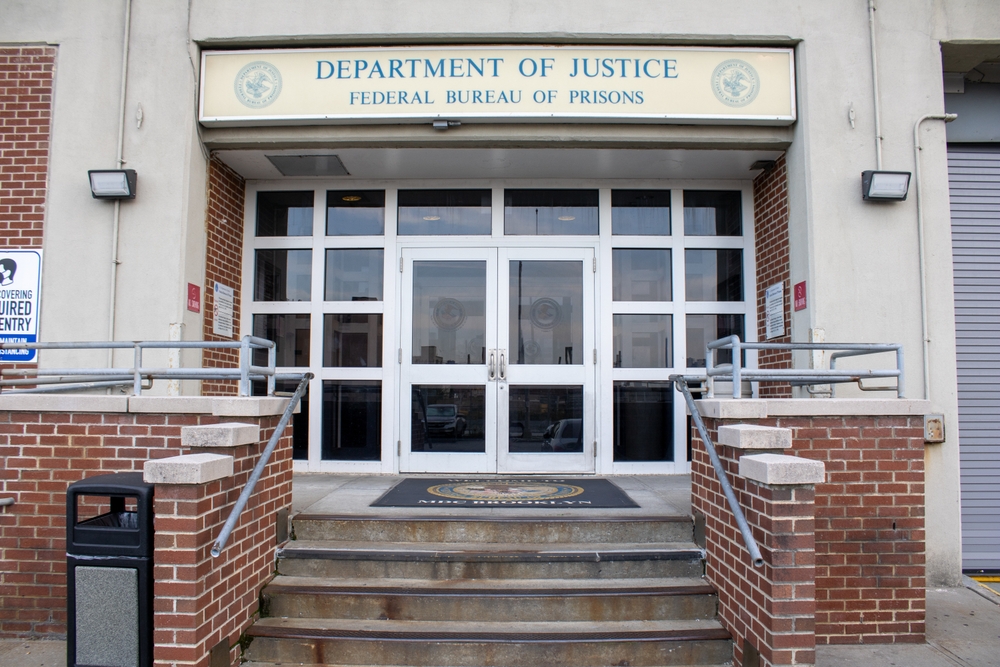In 2023, the Federal Bureau of Prisons (BOP) shut down a notorious unit at Thomson Penitentiary in Illinois following reports of severe abuse. The closure came after investigative reporting by NPR and The Marshall Project revealed alarming instances of mistreatment, including violent deaths and the excessive use of restraints, often leaving permanent scars referred to by prisoners as “Thomson tattoos.” Despite these revelations, the warden at the time, Andrew Ciolli, has since been reassigned to significant roles within the BOP, raising serious concerns about accountability and reform, NPR’s Joseph Shapiro discussed yesterday on All Things Considered.
Abuse Under Ciolli’s Leadership at Thomson
Thomson Penitentiary became infamous for its harsh treatment of incarcerated individuals. According to the Marshall Project, in July 2023, the Washington Lawyers’ Committee for Civil Rights and Urban Affairs released a report detailing extensive abuse at Thomson Penitentiary’s Special Management Unit. The report, based on accounts from over 120 incarcerated individuals, described beatings by officers, inadequate mental health care, and systemic barriers to filing complaints. Following these revelations, the Bureau of Prisons closed the unit in February 2023, citing “significant concerns with respect to institutional culture.”
Prisoners were reportedly forced into cells with others they were expected to fight, resulting in several violent deaths. Restraints were used excessively, cutting into inmates’ wrists and ankles, leaving lasting physical damage. Ciolli, as warden during this period, faced widespread criticism for his oversight, with the whistleblower alleging systemic abuse under his command.
The Spread of Abuse to Florence Penitentiary
After leaving Thomson, Ciolli was reassigned to oversee the federal prison complex in Florence, Colorado, home to some of the most secure facilities in the U.S., including the notorious Supermax prison. According to documents from the U.S. Office of Special Counsel, a whistleblower revealed that Ciolli brought similar abusive practices to Florence. Prisoners there were subjected to pepper spray and prolonged use of restraints, often for minor infractions or acts considered private, such as masturbating in their cells.
A particularly disturbing practice implemented under Ciolli’s tenure involved marking prisoners accused of sexual offenses. These individuals were forced to wear yellow tags around their necks, publicly identifying them and placing them at heightened risk of violence and extortion from other inmates. The whistleblower stated that this practice not only shamed prisoners but also created a dangerous environment that exacerbated their vulnerability.
Whistleblower Allegations and Investigative Findings
The whistleblower, a special investigative agent at Florence, reported these abuses to the U.S. Office of Special Counsel, a federal agency that investigates whistleblower complaints. Ciolli denied knowledge of the extent of the abuse, but the whistleblower alleged that he directly ordered the implementation of these punitive measures.
The Office of Special Counsel ultimately held Ciolli responsible for the systemic problems at Florence, leading the BOP to end the targeting program. While the BOP claimed that Ciolli faced disciplinary action, he was subsequently appointed director of the federal training center for prison staff. According to the BOP, his current role involves operational management rather than direct oversight of training programs.
Broader Implications for Federal Prison Reform
The revelations about Ciolli’s leadership at Thomson and Florence highlight significant gaps in accountability within the federal prison system. Despite documented abuse, Ciolli continued to receive high-level assignments, raising questions about the BOP’s commitment to meaningful reform. Advocacy groups and prison rights organizations argue that such practices perpetuate a culture of impunity, undermining efforts to protect incarcerated individuals’ rights.
While the BOP has taken steps to address some of the whistleblower’s allegations, the continued employment of individuals like Ciolli in leadership positions remains a source of contention for prison reform advocates.

Leave a Reply